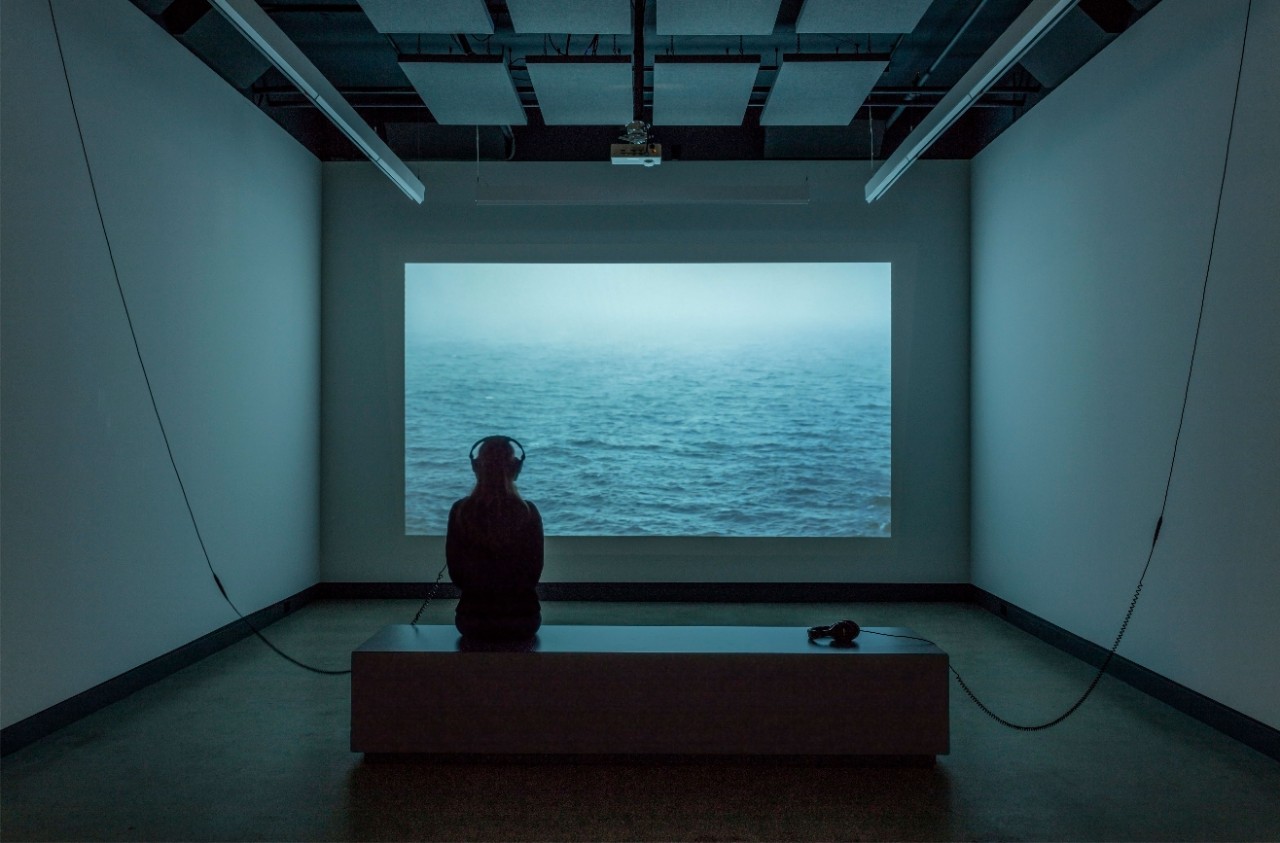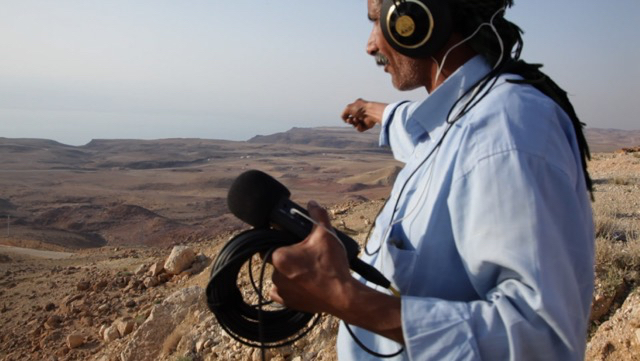Concordia alumna Sandra Volny speaks about her latest project
Concordia graduate Sandra Volny explores concepts of sound and space through forms of collective knowledge and shared skills in her recent project, Sound and Space Research.
Volny is a multidisciplinary artist who splits her time between Paris, France and Montreal. A MFA graduate from Concordia University, she recently completed her PhD at La Sorbonne in Paris this past December. Through her work and research, Volny focuses on exploring concepts of sound and space, as well as their dualities and complexities. This can be seen in her video installation, where does sound go, where does it come from, which was exhibited at Concordia’s FOFA Gallery last fall.
Sound and Space Research continues Volny’s investigation of aural and spatial awareness, with the added component of collective knowledge and concepts of shared intelligence. This is done through the collaboration of interdisciplinary forms and shared learning experiences. Throughout her career, Volny has collaborated with other artists of various disciplines, each participating and bringing their specific expertise to a project and to their collective work.
Where does sound go, where does it come from, which focuses on the use of sound, specifically sonar in small fishing villages in Chile, was a collaboration through Volny’s collective, Triangular Project. Volny and two fellow artists, Florine Leoni and Macarena Ruiz-Tagle, traveled around Chile together and worked in tandem on their specific focuses and artistic practices within the theme of aural and spatial awareness.

It was with Triangular Project that Sound and Space Research first came to fruition in 2017. The project, in collaboration with the Ionion Center for the Arts and Culture in Greece, is an artistic research platform for participants of all expertise and disciplines.
Sound and Space Research is a week-long experience. Each day involves diverse activities and exercises, providing participants with a range of mediums to practice and explore. As part of the focus on shared knowledge, participants practice a wide range of primarily fine arts-based disciplines, including dance, music and visual arts, as well as architecture, wellness professions and anthropology. The project is not focused on participants’ previous accomplishments, but rather encourages and facilitates further growth on a personal and collective level. Participants come from all over the world, and do not require a particular level of education or experience to participate. Last year, however, about 60 per cent of participants were Concordia students or alumni, according to Volny.
Sound and Space Research is a very intense experience, with all of the participants living together, working together and sharing the same spaces. According to Volny, this intensity encourages and creates something special. Participants have to push themselves; each day consists of different activities in different forms and disciplines. This aspect ties into Volny’s own work process, in which she immerses herself in new environments and works in collaboration with other artists, such as her travels in Chile for where does sound go, where does it come from. This was a very intense experience for Volny, because she was meeting new people and exploring different facets of her research in a new environment, while also creating new work born from these experiences and interactions.
At the end of the program, there is a collective exhibition for the participants to showcase work they have created during the week. This final showcase is open to the public, as a component of the partnership with the Ionion Center, to encourage interaction between the artists and the community. This accessibility is important to Volny and for the participants, as it allows further connection with the community.
In mid-May, Sound and Space Research will once again take place in collaboration with the Ionion Center for the Arts and Culture. It will be organized by Volny, alongside sound artist Jacob Kirkegaard, who will work as a mentor in the program.
Sound and Space Research works outside of academic institutions, and a university degree or a specific level of expertise is not required to participate in this project. The project does have connections with academic spaces, though, and Volny said there are plans to expand it internationally, and eventually to Montreal.
More information about the Sound and Space Research project, including how to apply to this year’s session, is available on its website.
Feature photo courtesy of Sandra Volny




